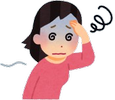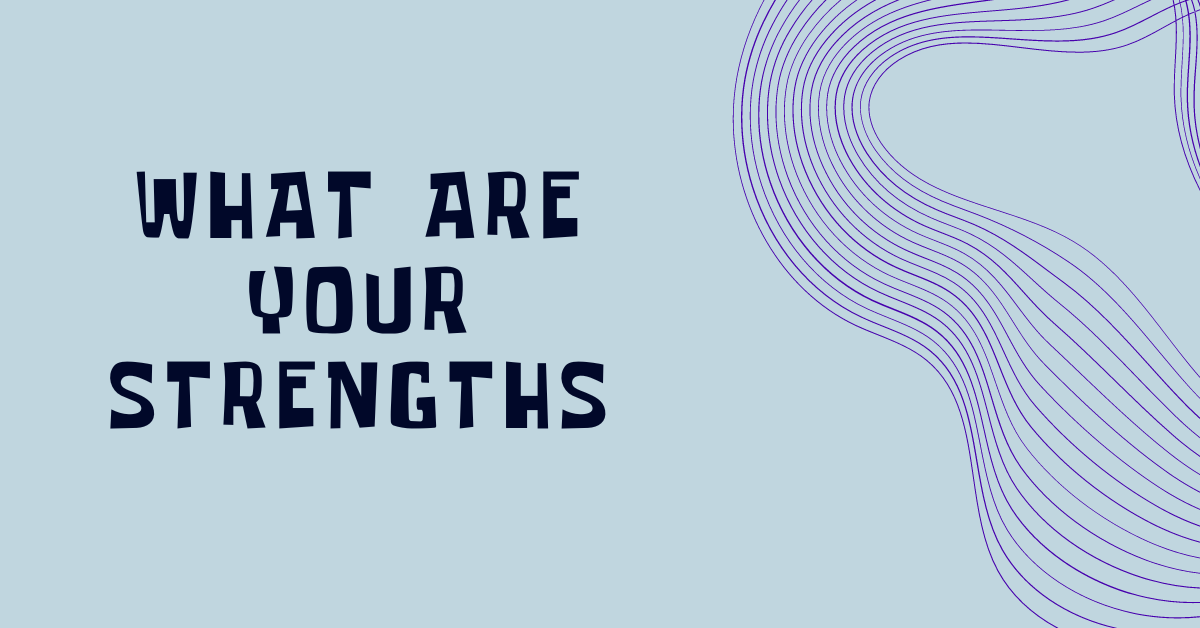Ever felt stumped when an interviewer asks the What are your strengths and weaknesses interview question? You’re not alone. This interview question can make even the most confident job seekers break a sweat.
But don’t worry – with the right approach, you can turn this tricky question into a golden opportunity to shine.
Let’s break it down and make it simple.
- Why Do Interviewers Ask This Job Interview Question?
- Highlighting Your Strengths
- Be Specific with Examples
- Addressing Your Weaknesses
- Using Real-Life Stories
- Preparation is Key
- Align with the Job Requirements
- Storytelling Techniques
- Keep It Concise
- Common Questions to Expect
- Real-Life Examples
- Common Strengths Examples
- The Importance of a Conversational Tone
- Common Weaknesses Examples
- Final Thoughts
Why Do Interviewers Ask This Job Interview Question?
Understanding the interviewer’s perspective is crucial. They’re not just making small talk or trying to trip you up. They want to see if you know yourself well. They’re checking if you can think critically about your own performance at work. It helps them figure out if you’re a good fit for the job description.
Hiring managers use this question to evaluate how well your strengths align with the key skills required for the role, leaving a positive impression on them.
Your answer shows how well you communicate and link your past experiences to the potential role. Being honest about your weaknesses and how you’re working on them is key. It shows you’re willing to learn and grow, which is something employers love to see.
This question gives interviewers insight into your self-awareness and honesty. They want to see if you’re a good fit for the job and how you handle self-improvement.
Knowing how to answer can make a big difference in your interview success.
Get Expert Help
Our cutting edge AI interview preparation gives you complete preparation for your interview. Get started Now!

Highlighting Your Strengths
When talking about your strengths, be specific and use concrete examples. Instead of just saying “I’m a hard worker,” share a story that proves it. Maybe you led a project that increased sales by 20%. Or you solved a tricky problem that saved the company time and money.
Use the STAR method to structure your answers:
- Situation: Set the scene.
- Task: Explain what you needed to do.
- Action: Describe the steps you took.
- Result: Share what happened because of your actions.
For example: “In my last job, we faced a significant drop in customer satisfaction (Situation).
My task was to identify the root cause and implement a solution (Task).
I introduced a new feedback system as a creative solution and trained the team on how to use it effectively (Action).
This led to a 15% increase in customer satisfaction scores within three months (Result).”
Remember to match your strengths to what the job needs. If the job requires teamwork, talk about how well you collaborate with others. If it’s about problem-solving, focus on your analytical skills.
Get Expert Help
Our cutting edge AI interview preparation gives you complete preparation for your interview. Get started Now!
Be Specific with Examples
Instead of saying you’re a ‘hard worker’ or a ‘team player,’ give specific examples. Did you lead a project that increased sales by 20%? Did you solve a complex problem that saved the company time and money? Did you find creative solutions to unexpected challenges that contributed to the company culture? These examples show that you’re not just talking the talk but also walking the walk.

Addressing Your Weaknesses
When it comes to weaknesses, honesty is the best policy.
Choose a real weakness, but make sure it’s not crucial for the job you’re applying for.
If you’re going for a marketing job, don’t say you’re bad at creative thinking. Instead, you might mention you’re working on improving your public speaking skills.
The key is to show how you’re addressing your weaknesses. This proves you have a growth mindset and are willing to learn.
For example: “I’ve realized that public speaking isn’t my strong suit. To work on this, I’ve joined a local Toastmasters group and have been practicing regularly. I’m already seeing improvements in my confidence and delivery.”
Another example could be: “I used to struggle with trying to do everything myself, but I’ve learned to delegate tasks based on my team’s strengths. This has not only improved our efficiency but also built trust within the team.”
Keep your answers short and sweet. Avoid rambling or sharing too much. Stay positive, even when talking about your weaknesses. This shows you’re optimistic and proactive.

Using Real-Life Stories
People remember stories better than facts. Share real-life examples to make your points more engaging and memorable. Think of it like chatting with a friend over coffee, sharing your experiences and lessons learned. This approach makes your answers more relatable and impactful.
Use anecdotes that highlight your problem-solving skills or teamwork abilities. These stories can demonstrate how you’ve applied your strengths in real-world situations. They also show how you’ve overcome challenges and grown from your weaknesses.
Preparation is Key
Practice your answers before the job interview.
This helps you stay confident and avoid awkward pauses. Try rehearsing with a friend or in front of a mirror to get comfortable with your responses. The more you practice, the more natural and confident you’ll sound.
Consider recording yourself and listening back to identify areas for improvement. This can help you refine your answers and delivery. Preparation also includes researching the company and the specific role you’re applying for. This knowledge will help you tailor your strengths and weaknesses to the job requirements.
Get Expert Help
Our cutting edge AI interview preparation gives you complete preparation for your interview. Get started Now!

Align with the Job Requirements
Tailor your strengths and weaknesses to fit the job you’re applying for.
If the job needs teamwork, highlight your collaboration skills.
If it involves problem-solving, focus on your analytical abilities.
Review the job description carefully and identify key skills and qualities they’re looking for. Then, align your strengths with these requirements to succeed in job interviews.
For weaknesses, choose areas that aren’t critical to the job but show your willingness to grow. This approach demonstrates that you’ve thought carefully about how you fit the role, which is crucial for job interviews.
Storytelling Techniques
Craft a compelling narrative about your strengths and weaknesses. This makes your answers more memorable and impactful. Use the STAR method to structure your stories:
For example, if you’re great at problem-solving, you could say:
“At my last job, we faced a significant drop in user engagement on our app (Situation). My task was to identify the root cause and implement a solution (Task). I analyzed user feedback and found a common issue with the interface. I proposed and implemented a redesign (Action). This led to a 30% increase in user engagement within three months (Result).”
When talking about weaknesses, show how you’ve grown:
“I used to struggle with meeting deadlines (Situation). To improve, I started using a project management tool to prioritize tasks and set reminders (Action). This change helped me complete projects on time and even take on more responsibilities (Result).”
These stories make your answers more engaging and memorable. They provide concrete evidence of your skills and growth.

Keep It Concise
In interviews, short and sweet answers often work best. Long-winded responses can lose the interviewer’s attention. Clear and concise answers make a stronger impact. When highlighting strengths, be direct. Say what you’re good at and back it up with specific examples.
For instance, if you’re great at project management, mention a project where you led your team to success.
Everyone has weaknesses, and it’s okay to talk about them.
Be honest but also show how you’re working to improve.
For example, if you used to struggle with time management, explain how you adopted new tools or methods to get better. Practice being concise in your everyday conversations. This will help you naturally give more focused answers in interviews.
Remember, quality is more important than quantity in your responses.
Common Questions to Expect
Strengths:
- What are your strongest skills?
- Can you give an example of a time when your strengths helped you succeed?
- How do your strengths set you apart from other candidates?
- How have you used your strengths to overcome challenges in your career?
Weaknesses:
- What’s your biggest weakness?
- How have you worked to overcome this weakness?
- Can you describe a time when your weakness affected your work and how you dealt with it?
- What steps are you taking to improve upon your weaknesses?
Be prepared to answer follow-up questions about your examples. Interviewers might ask for more details or how you’d apply your strengths to their specific company.
For weaknesses, they might ask how you plan to ensure they don’t interfere with your work. Having multiple examples ready can help you answer these follow-up questions smoothly.

Real-Life Examples
Imagine you’re interviewing for a marketing role. Here’s how you might answer these questions:
Strengths: “One of my strongest skills is creativity, especially in digital marketing. For example, I once developed a social media campaign that went viral, boosting our engagement by 40%. I analyzed our target audience’s preferences and created content that resonated with them. This campaign not only increased our follower count but also led to a 15% increase in product sales.”
Weaknesses: “I used to hesitate when it came to data analysis, which is crucial in marketing. Recognizing this weakness, I’ve taken several online courses in data analytics and statistics. Now, I can confidently analyze metrics and make data-driven decisions. For instance, in my last role, I used my new skills to optimize our email marketing strategy, resulting in a 25% increase in open rates.”
These answers show self-awareness, provide specific examples, and demonstrate a commitment to growth. They also relate directly to the marketing role, showing how your strengths and improved weaknesses make you a strong candidate.
Common Strengths Examples
Let’s break down some core strengths that many employers value:
Team Player
Being a team player means you work well with others. Employers appreciate this because collaboration often leads to better results. For example, in a project setting, your people skills can help you collaborate effectively with your team.
You might say: “I thrive in collaborative environments. In my last role, I worked on a cross-functional team to launch a new product. By fostering open communication and leveraging each team member’s strengths, we completed the project ahead of schedule and exceeded our sales targets by 20%.”
Strong Work Ethic
A strong work ethic shows that you’re reliable and dedicated. This is crucial because employers need someone they can count on to get the job done. Maybe you’ve never missed a deadline or you always go the extra mile to complete tasks – these are great examples to share.
For instance: “I pride myself on my strong work ethic. In my previous job, I consistently met or exceeded my targets. When we had a critical project with a tight deadline, I volunteered to work extra hours to ensure its success. This dedication not only helped us meet the deadline but also secured a long-term contract with the client.”
Adaptability
Adaptability is your ability to handle change and new situations smoothly.
For instance, if you’ve successfully navigated a company restructuring or adapted quickly to new software, these are stories worth telling.
You could say: “I’m highly adaptable to change. When my previous company underwent a major restructuring, I quickly adjusted to new roles and responsibilities. I also helped my colleagues adapt by creating user guides for our new systems. This flexibility allowed our team to maintain productivity during the transition period.”
Problem-Solving Skills
Problem-solving skills show that you can handle challenges effectively. Share examples where you’ve identified an issue and developed a workable solution, like improving a process that saved the company time or money.
For example: “I excel at problem-solving. In my last role, I noticed our customer service response times were lagging. I analyzed the process, identified bottlenecks, and implemented a new ticketing system. This reduced our average response time by 40% and increased customer satisfaction scores by 25%.”
Detail-Oriented
This means that you pay attention to the small things, which can make a big difference in the quality of your work. Perhaps you caught an error that others missed, ensuring the success of a project.
You might share: “I have a keen eye for detail. Once, while reviewing a contract, I noticed a small discrepancy in the terms that could have cost the company significantly. By catching and correcting this error, I saved the company from potential legal issues and financial losses.”
Time Management
Good time management helps you stay organized and meet deadlines. Talk about how you prioritize tasks or use tools like calendars and to-do lists to stay on track.
For instance: “I’m excellent at managing my time. I use a combination of digital tools and prioritization techniques to ensure I meet all my deadlines. In my last job, I was able to juggle multiple projects simultaneously, completing them all on time and to a high standard. This skill allowed me to take on 20% more work than my colleagues while maintaining quality.”

The Importance of a Conversational Tone
Use everyday language rather than overly formal or jargon-heavy terms.
This makes you more relatable and easier to understand. Show enthusiasm when talking about your strengths. Your passion for your skills can be contagious and leave a positive impression.
Practice your answers out loud to ensure they sound natural and conversational.
Get Expert Help
Our cutting edge AI interview preparation gives you complete preparation for your interview. Get started Now!
Common Weaknesses Examples
Here are some common weaknesses you might relate to:
Struggles with Time Management
You might find it hard to meet deadlines. But if you’re actively working on better planning and organization, that’s a positive step.
You could say: “I used to struggle with time management, often feeling overwhelmed by multiple deadlines. To address this, I’ve started using the Pomodoro Technique and a digital planner. These tools have helped me prioritize tasks and stay focused, improving my ability to meet deadlines consistently.”
Lack of Confidence
Feeling uncertain about your abilities can hold you back. However, seeking feedback and mentorship shows you’re willing to grow.
For instance: “In the past, I’ve sometimes lacked confidence in my ideas, hesitating to speak up in meetings. To overcome this, I’ve started seeking regular feedback from my managers and mentors. This has helped me recognize my strengths and contribute more confidently in team discussions.”
Being Hard on Yourself
Self-criticism can be tough to manage. Learning to focus on positive outcomes can help you balance this trait.
For example: “I tend to be overly critical of my own work, which sometimes leads to unnecessary stress. I’m working on this by practicing positive self-talk and celebrating small wins. I’ve also started keeping a ‘success journal’ to remind myself of my achievements.”
Difficulty Delegating Tasks
If you struggle to delegate, it might stem from a desire for perfection or a lack of trust in others’ abilities.
You could say: “I’ve realized that I sometimes have difficulty delegating tasks, preferring to handle everything myself to ensure it’s done right. However, I understand this can limit team growth and efficiency. I’m working on this by maintaining a positive attitude, consciously assigning tasks to team members, and providing clear instructions and support.”
Impatience with Slow Processes
Impatience can be both a strength and a weakness, depending on the situation.
For instance: “I sometimes get impatient with slow-moving processes or decision-making. While this drive for efficiency can be beneficial, I recognize it can also create unnecessary pressure. I’m learning to balance my desire for quick progress with respect for necessary procedures and other people’s work styles.”
Discomfort with Ambiguity
Some roles require comfort with uncertainty, which can be challenging for those who prefer clear-cut situations.
You might share: “I used to struggle with ambiguous situations, preferring clear-cut directions. However, I’ve learned that ambiguity is often part of complex projects. To improve, I’ve started asking more clarifying questions and breaking ambiguous tasks into smaller, more defined steps.”
Difficulty Saying No
The inability to say no can lead to overcommitment and stress.
For example: “In the past, I found it hard to say no to requests, which sometimes led to overcommitment. I’m working on this by prioritizing my tasks more effectively and learning to communicate my limitations clearly and professionally.”
Final Thoughts
When preparing for your interview, focus on these strengths and back them up with real-life examples. This approach not only highlights your abilities but also makes your answers more engaging and memorable. Remember, your goal is to show why you’re the best fit for the role, so keep the conversation positive and focused on your strengths.
By approaching the strengths and weaknesses question with honesty, clarity, and relevant examples, you demonstrate that you’re a proactive and self-aware candidate. This strategy not only helps you stand out but also shows that you’re ready to grow and contribute to the team.
Mastering the art of discussing your strengths and weaknesses isn’t just about impressing interviewers – it’s about showcasing your journey of growth. Be honest, stay concise, and align your experiences with the job description. Tell your story with confidence and clarity.
Remember, interviewers aren’t looking for perfect candidates – they’re looking for authentic, self-aware individuals who can contribute to their team and grow with the company. Your ability to articulate your strengths and weaknesses effectively demonstrates your communication skills, self-awareness, and potential for growth.
Don’t be afraid to show your personality during the interview. While maintaining professionalism, let your unique qualities shine through. This can help you connect with the interviewer on a more personal level.
Be prepared for follow-up questions about your strengths and weaknesses. Interviewers might ask for more details or how you’d apply your strengths to specific situations in their company.
If you’re asked about a weakness that’s crucial to the job, be honest but emphasize your commitment to improvement and any progress you’ve already made.
Remember that the “strengths and weaknesses” question is just one part of the interview. Make sure you’re prepared for other common interview questions as well.
After the interview, reflect on your performance. Think about how you answered the strengths and weaknesses question and consider how you might improve for future interviews.
Lastly, remember that interviews are a two-way street. While you’re showcasing your strengths and addressing your weaknesses, also consider whether the company and role align with your career goals and values.
Go on, shine in your next interview! With thorough preparation and a thoughtful approach to discussing your strengths and weaknesses, you’ll be well-equipped to make a strong impression and potentially land your dream job.
Good luck!
Get Expert Help
Our cutting edge AI interview preparation gives you complete preparation for your interview. Get started Now!



